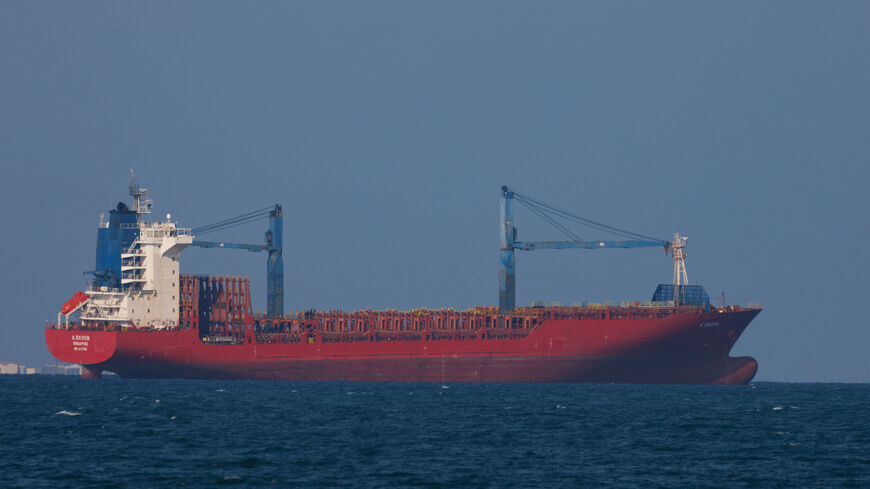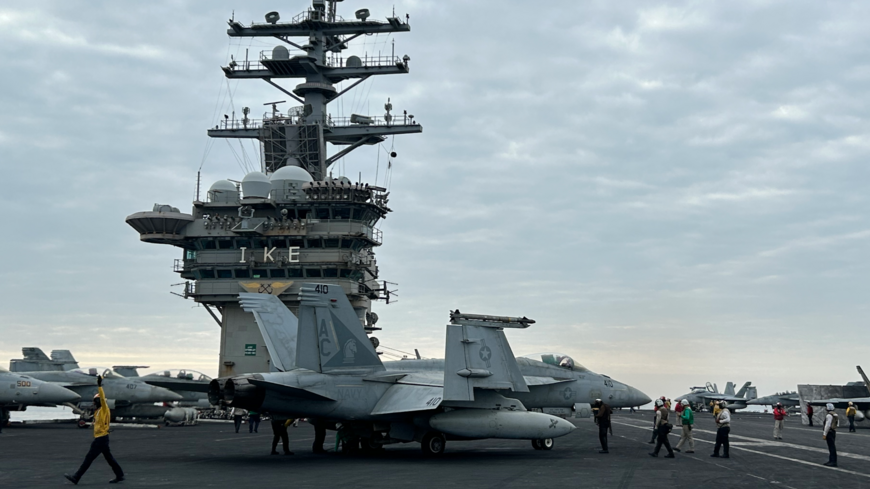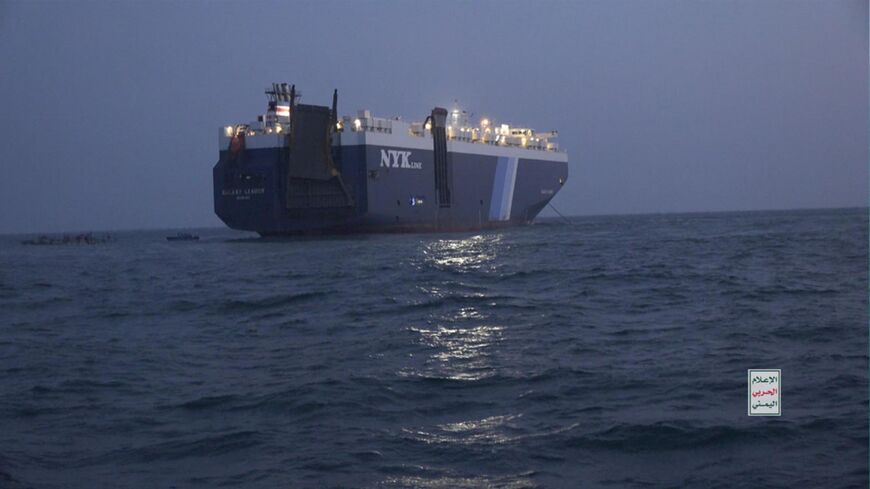Yemen’s Houthis can range Mediterranean ships, Pentagon says
Yemen’s Houthi rebels have vowed to expand their attacks on commercial shipping into the Mediterranean Sea.

WASHINGTON — Yemen’s Houthi rebels warned early this month that they would expand their ongoing campaign of attacks on commercial shipping in the Red Sea to the vessels in Mediterranean.
A senior Pentagon official this week said the US has seen no sign the Iran-armed rebels have attempted to do so yet, but admitted to being worried about the possibility.
“The Houthis have an advanced array of weaponry,” the senior US defense official speaking on the condition of anonymity told reporters during a diplomatic visit to the region on Monday.
“They have weapons that could reach the Mediterranean,” the senior official said. “It definitely is of concern that they have that capability.”
Why it matters: Yemen’s Houthis have mounted more than 90 attacks on commercial shipping in the Red Sea and Gulf of Aden since November in what the Zaidi Shiite faction has characterized as retaliation for Israel's war in the Gaza Strip.
The Houthis also hit at least one Israeli-linked commercial vessel in the Indian Ocean, some 300 miles east of the coast of Africa, in late April, and have claimed to have staged several other attacks on ships there.
On May 3, Houthi spokesperson Yahia Saree warned the campaign would soon target vessels sailing to Israel from the Mediterranean, while vowing to expand attacks in the Indian Ocean.
"There's really no precedent for the use of anti-ship ballistic missiles, the way they are doing it," the senior US defense official said, adding, "It's a kind of maritime terrorism that the entire world has an interest in seeing brought to a close."
The US military has set up two separate coalitions to crack down on the Houthis attacks. The first, dubbed Operation Prosperity Guardian, aimed to provide commercial vessels transiting the Red Sea with armed naval protection as a deterrent.
In February, the United States and the United Kingdom began a series of air and naval strikes targeting Houthi missile and drone stockpiles inside Yemen. Yet US military officials overseeing the campaign admit the attritional approach has its limits, as the US Navy's efforts to interdict Iran's steady supply of precision-guided components to the Houthis have barely made a dent.
Behind the scenes: Pentagon officials are meeting with military officials from Gulf Cooperation Council countries in Riyadh on Wednesday to press for more support for US and allied efforts to interdict smuggled Iranian missile components to the Houthis.
"We'll discuss the multilateral efforts to bolster information sharing, counterproliferation, ways to increase the effectiveness of combined interdictions and technologies to increase maritime domain awareness," the senior US defense official said on Monday.
"Part of what we're working on in these working groups is how to ensure that everybody has the information and … awareness and that we pool the knowledge, technology and intelligence," the official said.
Between the lines: Saudi Arabia has restricted the US military's use of bases in the kingdom for launching airstrikes against Houthi targets in Yemen.
Weary of its yearslong campaign against the Houthis, Riyadh is seeking a diplomatic end to the war, which has largely halted since the UN brokered a cease-fire in April 2022 with the support of the Biden administration.
If Saudi Arabia and other Gulf states won't help the United States target and destroy the Houthis' mostly Iranian-made arsenal, Pentagon officials are hoping they can support a new multilateral interdiction effort.
"There's work to do, by all parties — obviously including those in the region who are very much affected by this violence — to try to diminish its impact and bring it to an end," the senior defense official said.
Background: Houthis missiles and drones have struck at least 20 commercial vessels since they began their attacks on commercial shipping in November.
The rebels began attacking commercial shipping after firing a series of drone and cruise missiles toward Israel's southern coast that were intercepted by a US Navy destroyer and Israeli air defenses in October.
On Nov. 19, Houthi gunmen then hijacked a Liberian-flagged tanker linked to Israeli billionaire Eyal Ofer, taking its 25 crew members hostage.
The Yemeni faction later turned to projectile attacks on ships off Yemen's coast after US Navy helicopters thwarted a subsequent hijacking attempt in late December, sinking two Houthi gunboats.
Three crew members have been killed in the Houthis' missile and drone attacks, several of which have targeted vessels with no apparent connection to Israel.
But the rebels fired two anti-ship missiles toward a tanker carrying commercial jet fuel off the coast of Yemen in December and sank a UK-owned cargo ship carrying some 21,000 metric tons of fertilizer in early March, risking what experts have warned may become serious environmental damage in the southern Red Sea.
The attacks have forced international commercial shipping to reroute around the southern coast of Africa while driving up insurance costs for carriers.
Correction: May 22, 2024. An earlier version of this article mistakenly noted that no crew members have been killed. A March 6 Houthi strike on a Barbados-flagged tanker killed three crew members.






